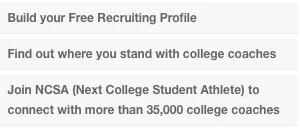College Admissions: The College Evaluation Process
The college evaluation process can be a fun and confusing and ultimately rewarding process. It can also be stressful because your academic record is going through an evaluation that will determine your future for the next four years.
Understanding the university admissions process can help remove some of the stress. And while most colleges will follow virtually the same evaluation process, each will have its own way of doing things.
Some universities are more selective than others. Even the least selective colleges will generally require at least a 2.5 grade point average to be considered in the evaluation process.
Where do you start? Most college-bound high school students will take the PSAT in the fall of their junior year (a few will take it as sophomores). By April of your senior year, you should have those acceptance letters rolling in. But what happens in between?
Hopefully, you met with a guidance counselor early in your high school career. This is a good way to map out a long-term plan to ensure you have choices when you decide on a college.
Your transcript is the most important part of the evaluation process. It will tell a story, and you want to do everything you can to make sure that story has a happy ending.
What can you do? Well, obviously, you need to get good grades, but you need to understand what those who perform this evaluation are looking for.
Your college application will include high school transcripts that will tell a lot about your potential to succeed in college. A transcript will reveal all of your academic experiences, including how challenging a course load you took. Most universities prefer a hard-earned “B” grade in an honors course over an easy “A” in a less-challenging class.
What else might go into this evaluation? Your school’s profile and demographics will be considered in addition to what sort of courses it offers. Some schools don’t offer any honors or advanced placement classes, and this must be factored in.
Many seniors will take relatively easy classes as their high school career winds down. A university evaluation may look at this skeptically as it may signal a not-so-serious student.
It is important to note that one bad grade won’t be too harmful to your chances. If your grade in that particular subject trends upward, it might even help you.
Once you’ve settled on which colleges are at the top of your list, it’s not a bad idea to contact the admissions office to see which high school courses matter most. For instance, many colleges will value a student’s musical talents or the fact that he played the lead in the school play. Others would rather see another honors course on the transcript.
Every high school is different. Your college evaluation will take into account your high school’s grading scale and even its average class size. Some colleges compare your transcripts to other students from your high school who have applied in their university in the past.
Remember that while the evaluation process may include test scores, essays, interviews, or maybe even letters of recommendation, all these will take a backseat to one thing: the evaluation of your transcripts.
Averett University Sports Recruiting.
Author: David Frank


